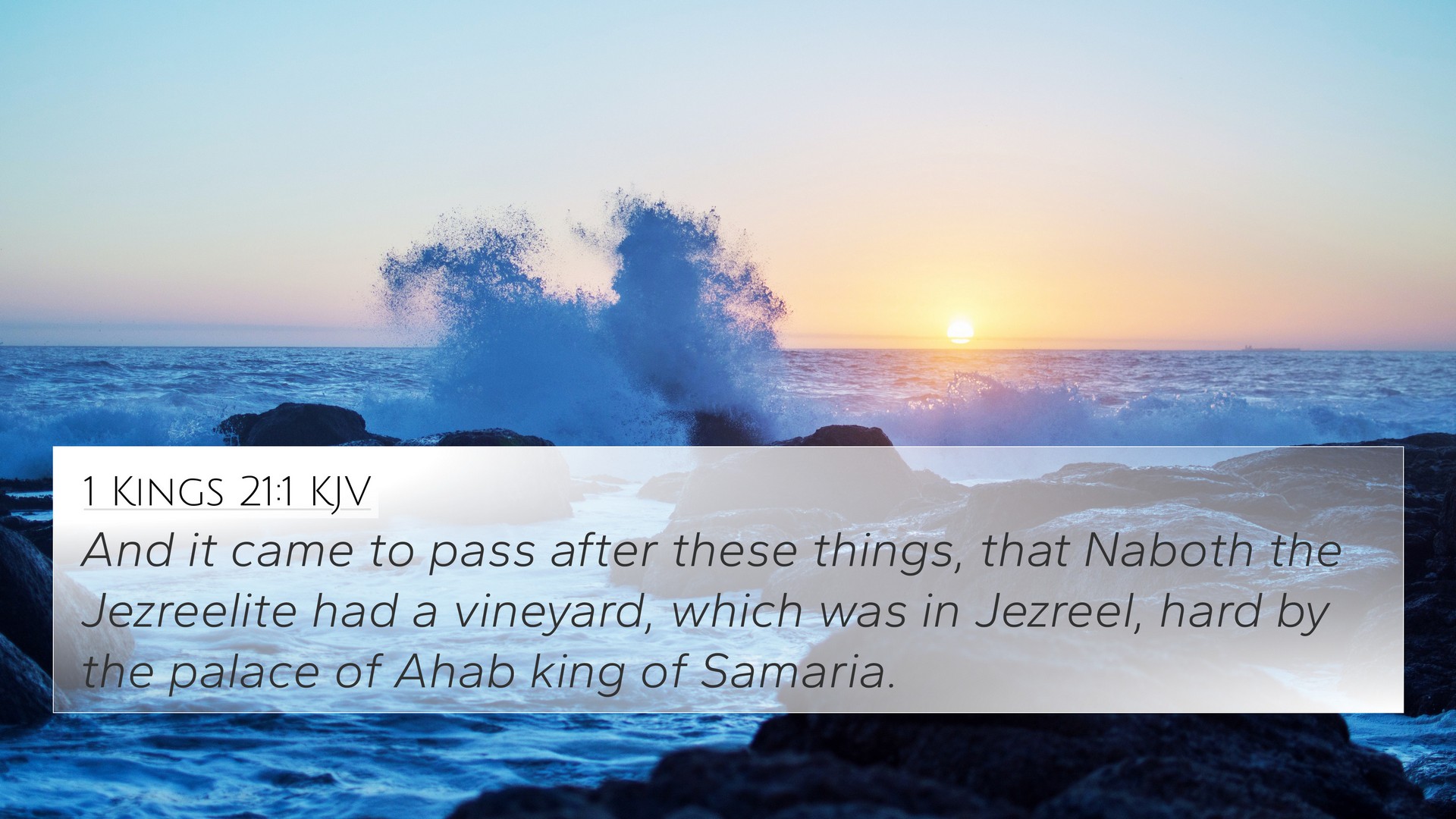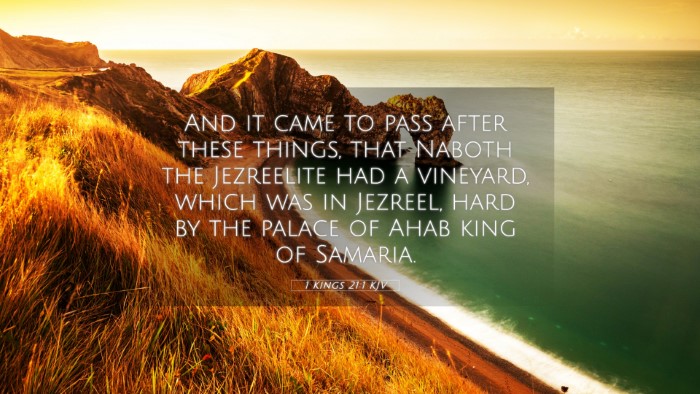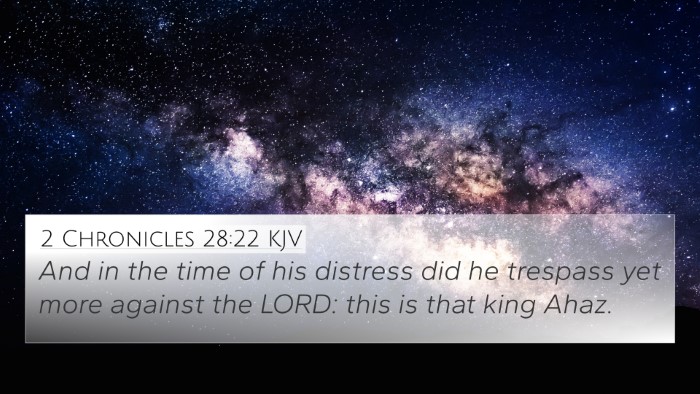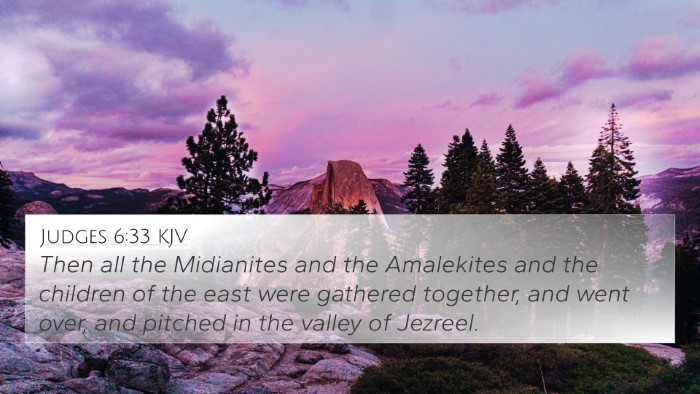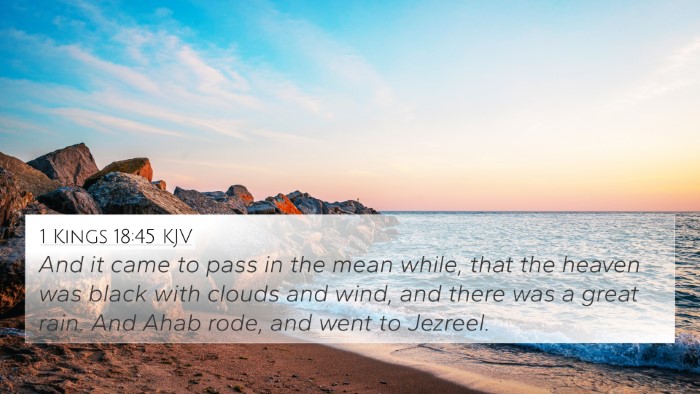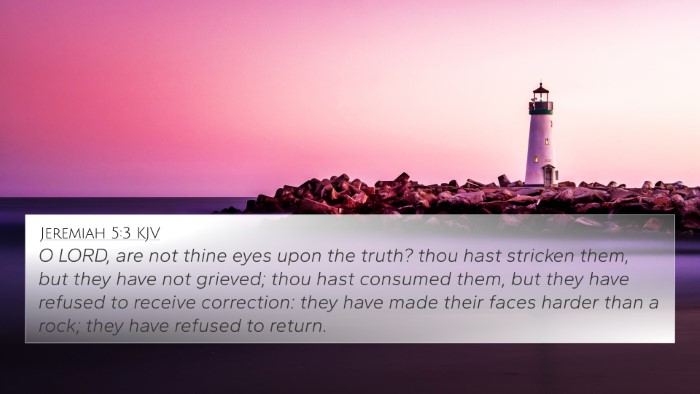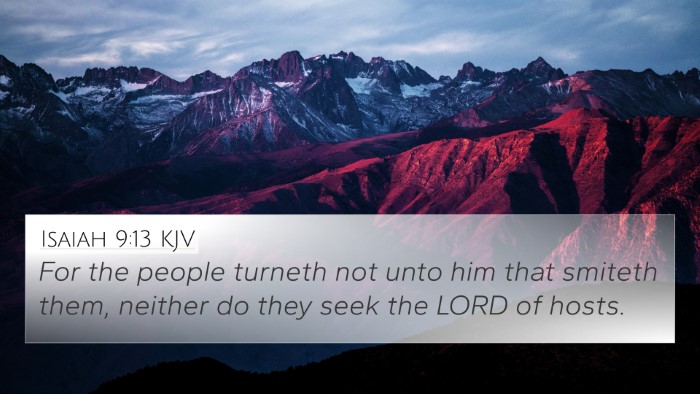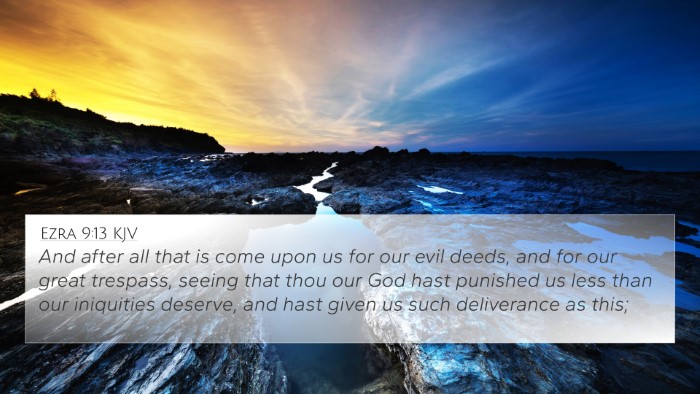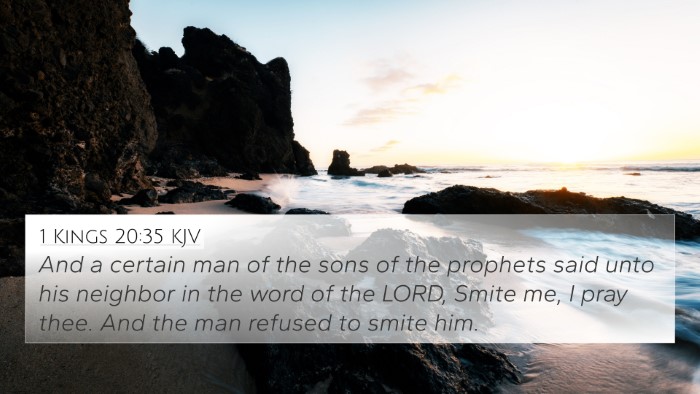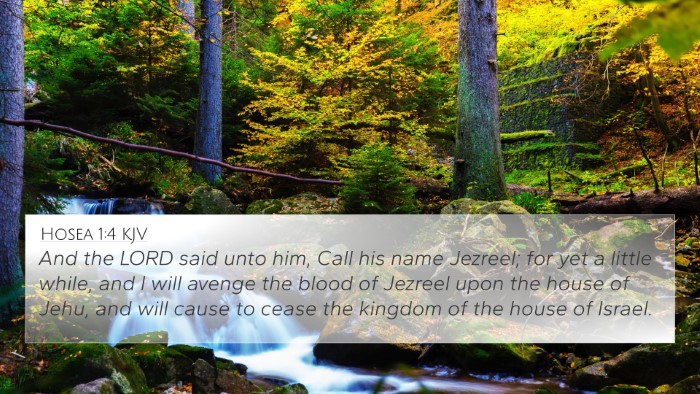Understanding 1 Kings 21:1
In this passage, we see the account of Naboth's vineyard, which takes place in the days of King Ahab of Israel. This verse sets the stage for a deeper examination of greed, covetousness, and the impact of power on morality.
1 Kings 21:1 states: "And it came to pass after these things, that Naboth the Jezreelite had a vineyard, which was in Jezreel, hard by the palace of Ahab king of Samaria."
Key Themes and Interpretation
-
Covetousness:
Commentaries emphasize Ahab's desire for Naboth's vineyard as a reflection of covetousness, aligning with the Tenth Commandment found in Bible verse cross-reference: Exodus 20:17. Ahab’s desire reveals the destructive nature of greed and its ability to lead a person to sin.
-
The Abuse of Power:
Ahab, as king, misuses his position to obtain Naboth's property. Matthew Henry articulates that this incident illustrates the dangers of unchecked power, paralleling the admonition in Bible verse cross-reference: Micah 2:2 about leaders exploiting the vulnerable.
-
Identity and Heritage:
Naboth’s refusal to sell his vineyard is tied to his covenant with God concerning the land. Adam Clarke cites Leviticus 25:23, reflecting the significance of heritage and God's design for land ownership in Israel, which roots Naboth's identity in his ancestry.
-
Injustice:
This passage foreshadows the events that will lead to Naboth’s demise and highlights the injustices faced by the innocent due to powerful adversaries. Barnes notes a similar theme in Bible verse cross-reference: Ecclesiastes 3:16, pointing to the prevalence of injustice on Earth.
-
Divine Judgment:
The narrative ultimately leads to God’s judgment against Ahab for his actions, which reflects the broader Biblical theme of divine justice, as seen in Bible verse cross-reference: 2 Kings 9:21-26. It warns of judgment upon those who act unrighteously.
Bible Verse Cross-References
Below are cross-references that enhance the understanding of 1 Kings 21:1, providing connections between Biblical texts:
- Exodus 20:17 - Commandment against coveting.
- Leviticus 25:23 - The permanence of land ownership.
- Micah 2:2 - Warnings against oppression of the needy.
- 2 Kings 9:21-26 - Ahab’s judgment for his acts of wickedness.
- James 5:6 - The righteous suffering at the hands of the wicked.
- Proverbs 1:18 - The consequences of seeking ill-gotten gains.
- Psalm 37:28 - Assurance of God’s justice for the righteous.
Linking Bible Scriptures for Deeper Insights
Understanding the connections between these verses offers a richer view of the moral and spiritual lessons embedded within Scripture. By cross-referencing 1 Kings 21:1 with verses that address themes of justice, righteousness, and heritage, one can grasp a more cohesive narrative about God’s perspective on social justice and personal integrity.
Tools for Bible Cross-Referencing
To study cross-references, one can utilize various tools such as:
- Bible concordance for finding specific references.
- Cross-reference Bible study methods to explore thematic connections.
- Bible cross-reference guides that outline relationships between verses.
Conclusion
1 Kings 21:1 introduces a poignant narrative that highlights issues of integrity, power, and the consequences of greed. By examining this verse through the lens of several public domain commentaries, we glean valuable insights regarding moral teachings that are applicable to our lives today. Through cross-referencing, we can explore deeper connections and establish an inter-Biblical dialogue that reflects the timeless nature of these truths.
